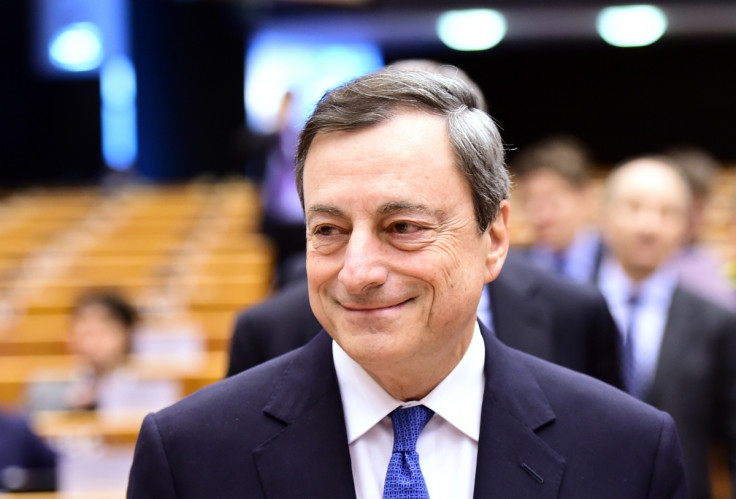Eurozone inflation returns to 0% and makes the case for Mario Draghi QE programme increase

Eurozone inflation in the year to October was at 0%, up from negative inflation in the months before. The consumer price inflation was at -0.1% and the rate to October was largely expected.
Industrial goods, food, alcohol and tobacco as well as services were all more expensive in the year but low oil prices weighed down the inflation rate, with energy prices falling around 8.7%. Oil prices kicked off their long-lasting fall around a year ago.
The low inflation rate might encourage the European Central Bank to increase its quantitative easing programme. When ECB president Mario Draghi said the bank would not change the interest rates or the size of the QE programme in October, he did hint an expansion of the stimulus plan may be in the cards.
Draghi said low inflation rates would be one of the main reasons the bank would increase the QE programme, in response to which European stock markets climbed. Investors are getting impatient because of the slow European growth and think the ECB buying more assets would help.
"We doubt that the eurozone will return to deflation, although it certainly cannot be ruled out given the ongoing softness of oil and commodity prices," Howard Archer, a UK and eurozone economist said. "We expect that eurozone consumer price inflation will head very gradually up over the coming months – due to base effects, expected ongoing (albeit relatively modest) Eurozone growth."
Unemployment fell to 10.8% in September in the euro area, from 10.9% in August. In September 2014, the rate was at 11.6%. Czech Republic and Germany recorded the lowest unemployment rates, while Spain and Greece are still struggling with the rate. The latter recorded an unemployment rate of 25%.
© Copyright IBTimes 2025. All rights reserved.






















